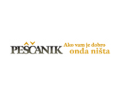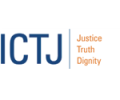Schoolbooks Perpetuate Kosovo-Serbia Divisions in Classrooms
Kosovo Albanian and Kosovo Serb children are taught under different educational systems, using textbooks that give differing versions of history – and sometimes perpetuate ethnic prejudice and nationalist ideas, experts say.
Besides politically-related history, the new textbooks put more emphasis on the social and cultural impact of historical events. But Ibrahimi said that the country’s textbooks still suffer from the use of nationalist rhetoric.
“There is still a tendency, although it’s not that much present, towards a one-sided approach on an ethnic basis. There are many cases in which we see selective sources or historical processes as well as the inappropriate usage of terminology,” he said.
The education system played an important role in Kosovo’s pre-war political history, when it was divided along ethnic lines as tensions rose in what was then a province of Yugoslavia. Both Kosovo Albanians and Serbs removed each other’s language and history from their curricula.
Serbia still maintains control over the education system in Kosovo’s Serb-majority areas, where schools use the Serbian state curriculum, and history – particularly recent history – is taught differently.
At the Serb-run King Milutin primary school in the town of Gracanica, school books have arrived for free from Serbia for the new educational year. In the books, Kosovo is described as being part of Serbia, rather than an independent state.
One of the teachers at the primary school, who wanted to remain anonymous, told BIRN that “nobody is asking teachers in Kosovo if [the textbooks’] content should be in line with new developments.
“What they cook [in Belgrade], we should eat. There is no other option. Sometimes the textbooks are not compatible with the situation,” the teacher said
But he was reluctant to say if he would work with Kosovo textbooks approved by the Pristina authorities.
Shkelzen Gashi, the head of Admovere, a Pristina-based organisation dealing with transitional justice, education and peace-building, said that biased and nationalistic narratives should be removed from textbooks in both countries.
“Obviously there are many differences, especially in the approach to historiography in the textbooks of Serbia and Kosovo,” Gashi told BIRN.
Admovere recently published research about the huge differences in presenting historical events in the two country’s schoolbooks. Gashi said that there are totally different narratives when it comes to what happened in recent decades in Kosovo.
“The liberation and the occupation of the country are presented differently. There continues to be offensive nationalism in Serbia’s textbooks, while in Kosovo’s textbooks there is a defensive nationalism,” he added.
The crimes of the others
Gashi said that the nationalistic narrative prevails in the teaching of what happened between 1912, the year of a revolt by Albanians in Kosovo and elsewhere against Ottoman rule, and 2000, the year after the war with Belgrade’s forces ended.
“The two countries’ textbooks show only the other side’s crimes, presenting themselves as the victim and the other as the aggressor,” he explained.
He mentioned contentious phrases used in Kosovo textbooks to describe Serbia’s actions, such as “violence and chauvinist terror”, “terror and state genocide” and “terrifying scenes of the barbarity of bloody squadrons”.
Meanwhile in Serbian textbooks, phrases like “attacks by Albanian gangs” and “terror by Albanians against Serbs” are used. The Serbian textbooks, claimed Gashi, “present only Kosovo Albanians’ crimes, and even when they offer more facts, they are again exaggerated”.
Dubravka Stojanovic, a professor of history at Belgrade University, said that the authorities in Serbia and Kosovo should establish a scientific commission of historians and other experts and start discussions about such sensitive and controversial issues.
“We are aware that we cannot vote on history and reach a consensus on what happened in the past, as we have very different opinions about that. But what we can do is to hear what the other side thinks about certain events and open our minds to debate, critical thinking and discussion,” Stojanovic told BIRN.
Stojanovic said she thinks that the first step is to get know the view of “the other” and build up mutual understanding.
“In this way, we can try to understand how a different perspective can change the understanding of the same event. This is the only reconciliation I believe in – to go much deeper and to help our societies to get out of the traps they have made for themselves,” she said.
‘Students must see both sides’
Arber Salihu, an officer for curriculum planning at Kosovo’s Ministry of Education, said that the country’s new curricula have a different approach, particularly to recent history in Europe.
“We have tried to offer advanced textbooks by focusing on facts and historical sources and by eliminating qualifications,” Salihu told BIRN.
He admitted however that sometimes a textbook might not be in line with the Ministry of Education’s new requirements.
“It’s true that there have been some mistakes. We have seen some inaccurate or watered-down versions of some events in the textbooks. In some cases, some important facts have been ignored for the sake of easing [inter-ethnic] relations or reconciliation,” he said.
In recent years, Kosovo schools have also been using some textbooks compiled by a group of more than 60 historians from all the countries in the region published by the Greek-based Centre for Democracy and Reconciliation in Southeast Europe.
The Centre for Democracy and Reconciliation provides materials based on a multi-perspective methodology, which involves showing different views of the same historical event. But Kosovo’s Ministry of Education claims that some of its materials have incorrect data and offer prejudiced narratives.
“These textbooks contain inaccuracies and some other defects. Above all, there is no flag of Kosovo alongside the other [national flags depicted in the textbook],” Salihu said.
Kosovo’s national strategic plan for education for 2017-2021 includes, as one of its aims, the development and implementation of policies to foster inter-ethnic relations through education.
However, the Kosovo Albanian and Serb educational systems have continued to work separately, with limited official co-operation and only sporadic opportunities for interaction among students from each system.
Dukagjin Pupovci, director of the Kosovo Education Centre NGO, pointed out that despite their common heritage from the Yugoslav era, the educational systems of Kosovo and Serbia contain significant differences.
“Elements of biased or hate-filled language still exist in Kosovo and Serbia, especially in the history and literature textbooks,” Pupovci told BIRN.
“Both countries need to practice a multi-perspective historical approach. Only in this way can students see both [Kosovo Albanian and Serb] versions of a historical event,” he said.
Schools in Kosovo that teach in the Serbian language can use curricula or textbooks developed by the Serbian Ministry of Education of Republic if they notify the Kosovo Ministry of Education.
Kosovo institutions have not worked to develop a separate Serbian language curriculum in Kosovo.
Pupovci said that it is to the benefit of both countries to remove biased language from textbooks because it serves to intensify divisions. “Though this, animosities can be deepened and the perspective for peace can only weaken,” he explained.
In a report published in 2018, the OSCE mission to Kosovo recommended the promotion of inter-community dialogue in education, in particular in mixed schools with the premises being shared between the two systems.
Arber Salihu said that if Kosovo and Serbia can reach any sustainable deal in their EU-mediate negotiations to normalise relations, there should be an agreement to unify Kosovo’s educational system.
“I am not saying it is too early for this. But it is not so easy,” Salihu cautioned.
Serbia’s Ministry of Education, Science and Technological Development declined to respond to BIRN’s questions about the Serbian curriculum and textbooks in schools in Kosovo.
Kushtrim Koliqi head of Pristina-based NGO Integra, whose work focuses on peace, reconciliation and human rights, said that both countries’ educational systems should use school history textbooks to help heal the wounds of conflict and overcome the deep antagonisms between them.
“Pupils themselves cannot reject ethnic divisions because there are no ethnically-mixed classes,” Koliqi told BIRN.
He argued that the time has come for Kosovo to unilaterally cleanse its textbooks of biased language.
“There is no need to wait for any agreement or big step from Serbia. Let the future generation have the opportunity to lay down the heavy burden of the past,” he said.










